#luddie
Text
Copyright won't solve creators' Generative AI problem

The media spectacle of generative AI (in which AI companies’ breathless claims of their software’s sorcerous powers are endlessly repeated) has understandably alarmed many creative workers, a group that’s already traumatized by extractive abuse by media and tech companies.
If you’d like an essay-formatted version of this post to read or share, here’s a link to it on pluralistic.net, my surveillance-free, ad-free, tracker-free blog:
https://pluralistic.net/2023/02/09/ai-monkeys-paw/#bullied-schoolkids
Even though the claims about “AI” are overblown and overhyped, creators are right to be alarmed. Their bosses would like nothing more than to fire them and replace them with pliable software. The “creative” industries talk a lot about how audiences should be paying for creative works, but the companies that bring creators’ works to market treat their own payments to creators as a cost to be minimized.
Creative labor markets are primarily regulated through copyright: the exclusive rights that accrue to creators at the moment that their works are “fixated.” Media and tech companies then bargain to buy or license those rights. The theory goes that the more expansive those rights are, the more they’ll be worth to corporations, and the more they’ll pay creators for them.
That’s the theory. In practice, we’ve spent 40 years expanding copyright. We’ve made it last longer; expanded it to cover more works, hiked the statutory damages for infringements and made it easier to prove violations. This has made the entertainment industry larger and more profitable — but the share of those profits going to creators has declined, both in real terms and proportionately.
In other words, today creators have more copyright, the companies that buy creators’ copyrights have more profits, but creators are poorer than they were 40 years ago. How can this be so?
As Rebecca Giblin and I explain in our book Chokepoint Capitalism, the sums creators get from media and tech companies aren’t determined by how durable or far-reaching copyright is — rather, they’re determined by the structure of the creative market.
https://chokepointcapitalism.com/
The market is concentrated into monopolies. We have five big publishers, four big studios, three big labels, two big ad-tech companies, and one gargantuan ebook/audiobook company. The internet has been degraded into “five giant websites, each filled with screenshots from the other four”:
https://twitter.com/tveastman/status/1069674780826071040
Under these conditions, giving a creator more copyright is like giving a bullied schoolkid extra lunch money. It doesn’t matter how much lunch money you give that kid — the bullies will take it all, and the kid will still go hungry (that’s still true even if the bullies spend some of that stolen lunch money on a PR campaign urging us all to think of the hungry children and give them even more lunch money):
https://doctorow.medium.com/what-is-chokepoint-capitalism-b885c4cb2719
But creative workers have been conditioned — by big media and tech companies — to reflexively turn to copyright as the cure-all for every pathology, and, predictably, there are loud, insistent calls (and a growing list of high-profile lawsuits) arguing that training a machine-learning system is a copyright infringement.
This is a bad theory. First, it’s bad as a matter of copyright law. Fundamentally, machine learning systems ingest a lot of works, analyze them, find statistical correlations between them, and then use those to make new works. It’s a math-heavy version of what every creator does: analyze how the works they admire are made, so they can make their own new works.
If you go through the pages of an art-book analyzing the color schemes or ratios of noses to foreheads in paintings you like, you are not infringing copyright. We should not create a new right to decide who is allowed to think hard about your creative works and learn from them — such a right would make it impossible for the next generation of creators to (lawfully) learn their craft:
https://www.oblomovka.com/wp/2022/12/12/on-stable-diffusion/
(Sometimes, ML systems will plagiarize their own training data; that could be copyright infringement; but a) ML systems will doubtless get guardrails that block this plagiarism; and, b) even after that happens, creators will still worry about being displaced by ML systems trained on their works.)
We should learn from our recent history here. When sampling became a part of commercial hiphop music, some creators clamored for the right to control who could sample their work and to get paid when that happened. The musicians who sampled argued that inserting a few bars from a recording was akin to a jazz trumpeter who works a few bars of a popular song into a solo. They lost that argument, and today, anyone who wants to release a song commercially will be required — by radio stations, labels, and distributors — the clear that sample.
This change didn’t make musicians better off. The Big Three labels — Sony, Warners, and Universal, who control 70% of the world’s recorded music — now require musicians to sign away the rights to samples from their works. The labels also refuse to sell sampling licenses to musicians unless they are signed to one of the Big Three.
Thus, producing music with a sample requires that you take whatever terms the Big Three impose on you, including giving up the right to control sampling of your music. We gave the schoolkids more lunch money and the bullies took that, too.
https://locusmag.com/2020/03/cory-doctorow-a-lever-without-a-fulcrum-is-just-a-stick/
The monopolists who control the creative industries are already getting ahead of the curve on this one. Companies that hire voice actors are requiring those actors to sign away the (as yet nonexistant) right to train a machine-learning model with their voices:
https://www.vice.com/en/article/5d37za/voice-actors-sign-away-rights-to-artificial-intelligence
The National Association of Voice Actors is (quite rightly) advising its members not to sign contracts that make this outrageous demand, and they note that union actors are having success getting these clauses struck, even retroactively:
https://navavoices.org/synth-ai/
That’s not surprising — labor unions have a much better track record of getting artists’ paid than giving creators copyright and expecting them to bargain individually for the best deal they can get. But for non-union creators — the majority of us — getting this language struck is going to be a lot harder. Indeed, we already sign contracts full of absurd, unconscionable nonsense that our publishers, labels and studios refuse to negotiate:
https://doctorow.medium.com/reasonable-agreement-ea8600a89ed7
Some of the loudest calls for exclusive rights over ML training are coming not from workers, but from media and tech companies. We creative workers can’t afford to let corporations create this right — and not just because they will use it against us. These corporations also have a track record of creating new exclusive rights that bite them in the ass.
For decades, media companies stretched copyright to cover works that were similar to existing works, trying to merge the idea of “inspired by” and “copied from,” assuming that they would be the ones preventing others from making “similar” new works.
But they failed to anticipate the (utterly predictable) rise of copyright trolls, who launched a string of lawsuits arguing that popular songs copied tiny phrases (or just the “feel”) of their clients’ songs. Pharrell Williams and Robin Thicke’s got sued into radioactive rubble by Marvin Gaye’s estate over their song “Blurred Lines” — which didn’t copy any of Gaye’s words or melodies, but rather, took its “feel”:
https://www.rollingstone.com/music/music-news/robin-thicke-pharrell-lose-multi-million-dollar-blurred-lines-lawsuit-35975/
Today, every successful musician lives in dread of a multi-million-dollar lawsuit over incidental similarities to obscure tracks. Last spring, Ed Sheeran beat such a suit, but it was a hollow victory. As Sheeran said, with 60,000 new tracks being uploaded to Spotify every day, these similarities are inevitable:
https://twitter.com/edsheeran/status/1511631955238047751
The major labels are worried about this problem, too — but they are at a loss as to what to do about it. They are completely wedded to the idea that every part of music should be converted to property, so that they can expropriate it from creators and add it to their own bulging portfolios. Like a monkey trapped because it has reached through a hole into a hollow log to grab a banana that won’t fit back through the hole, the labels can’t bring themselves to let go.
https://pluralistic.net/2022/04/08/oh-why/#two-notes-and-running
That’s the curse of the monkey’s paw: the entertainment giants argued for everything to be converted to a tradeable exclusive right — and now the industry is being threatened by trolls and ML creeps who are bent on acquiring their own vast troves of pseudo-property.
There’s a better way. As NAVA president Tim Friedlander told Motherboard’s Joseph Cox, “NAVA is not anti-synthetic voices or anti-AI, we are pro voice actor. We want to ensure that voice actors are actively and equally involved in the evolution of our industry and don’t lose their agency or ability to be compensated fairly for their work and talent.”
This is as good a distillation of the true Luddite ethic as you could ask for. After all, the Luddites didn’t oppose textile automation: rather, they wanted a stake in its rollout and a fair share of its dividends:
https://locusmag.com/2022/01/cory-doctorow-science-fiction-is-a-luddite-literature/
Turning every part of the creative process into “IP” hasn’t made creators better off. All that’s it’s accomplished is to make it harder to create without taking terms from a giant corporation, whose terms inevitably include forcing you to trade all your IP away to them. That’s something that Spider Robinson prophesied in his Hugo-winning 1982 story, “Melancholy Elephants”:
http://www.spiderrobinson.com/melancholyelephants.html
This week (Feb 8–17), I’ll be in Australia, touring my book Chokepoint Capitalism with my co-author, Rebecca Giblin. We’re doing a remote event for NZ on Feb 13. Next are Melbourne (Feb 14), Sydney (Feb 15) and Canberra (Feb 16/17). I hope to see you!
Image:
Cryteria (modified)
https://commons.wikimedia.org/wiki/File:HAL9000.svg
CC BY 3.0
https://creativecommons.org/licenses/by/3.0/deed.en
[Image ID: A poster for the 1933 movie ‘The Monkey’s Paw.’ The fainting ingenue has been replaced by the glaring red eye of HAL9000 from 2001: A Space Odyssey.]
#pluralistic#luddie#chokepoint capitalism#generative ai#artificial intelligence#voice acting#labor#creative labor#exclusive rights regimes#copyright#copyfight#careful what you wish for#machine learning#ai#ml#blurred lines#melancholy elephants
764 notes
·
View notes
Text
what is Artificial Intelligence AI
Artificial Intelligence (AI) is a field of computer science that focuses on the development of machines and software that can perform tasks that typically require human intelligence, such as perception, reasoning, learning, decision-making, and natural language processing. AI systems are designed to analyse data, recognize patterns, and make predictions or decisions based on that data. The goal of AI is to create machines that can think, reason, and learn like humans, and to develop intelligent systems that can automate tasks and improve our lives in various ways.
How Does AI Work
AI systems are designed to analyze and process vast amounts of data in real-time and derive insights from that data to make predictions or take actions. There are three main types of AI systems: rule-based systems, machine learning, and deep learning.
1.Rule-Based Systems
Rule-based systems are the simplest form of AI and rely on a set of pre-defined rules to make decisions. These systems work by analyzing data and applying specific rules to make decisions. For example, a rule-based system might be programmed to diagnose a disease based on a set of symptoms. The system would analyze the data, apply the rules, and then provide a diagnosis based on the outcome.
2.Machine Learning
Machine learning is a more advanced form of AI that involves teaching machines to learn from data without being explicitly programmed. This is done through a process known as training, in which machines are fed large amounts of data and algorithms are used to identify patterns and learn from the data. machinelearningmastery/ The machine then applies what it has learned to new data to make predictions or take actions.
There are three main types of machine learning: supervised learning, unsupervised learning, and reinforcement learning.
Supervised Learning: Supervised learning is a type of machine learning where the algorithm learns to make predictions by analyzing labelled training data. In this type of learning, the algorithm is trained using input-output pairs, where the input is a set of features or attributes, and the output is a labelled target value. The goal of supervised learning is to find a mapping between the input and output variables so that the algorithm can accurately predict the output for new, unseen inputs.
Examples of supervised learning include predicting the price of a house based on its features or diagnosing a patient’s illness based on their symptoms.
Unsupervised Learning: Unsupervised learning is a type of machine learning where the algorithm learns to identify patterns and relationships in unlabelled data. In unsupervised learning, the algorithm is given a set of inputs without any corresponding output labels, and it must find patterns or groupings in the data on its own.
Examples of unsupervised learning include identifying groups of similar customers in a marketing dataset or finding patterns in unstructured text data.
#pluralistic#luddie#chokepoint capitalism#generative ai#artificial intelligence#voice acting#labor#creative labor#exclusive rights regimes#copyright#copyfight#careful what you wish for#machine learning#ai#ml#blurred lines#melancholy elephants
2 notes
·
View notes
Text

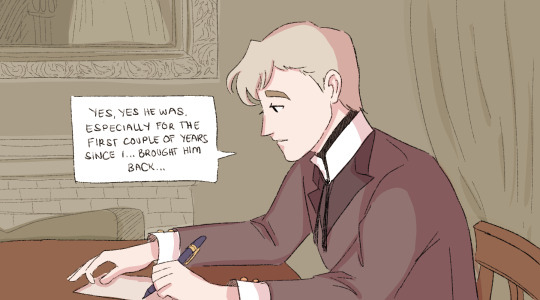
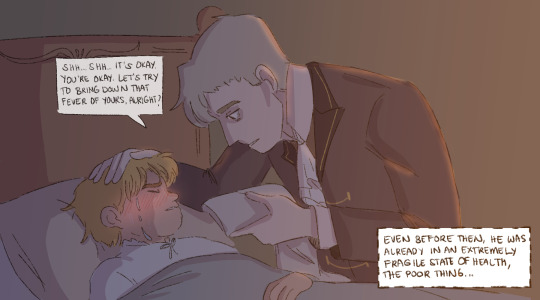
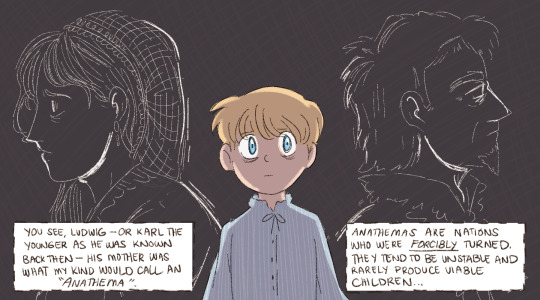
"On the rare occasion that they do, those children who survive the birth often grow up susceptible to all sorts of illnesses; as was the case with young Karl. Ironically, the killing blow France dealt ended up being the child's saving grace -- Strange how that works, isn't it?
In any case, Ludwig's health has improved a lot as he grew older. He's as healthy as one can be and I am grateful for that every day."
More new lore notes down below!
Nation is the word humans came to call them, but among their kind, they are referred to as Devai ( Devas, singular. )
Ludwig was born as Karl the Younger, the son of Karl the Elder (HRE) and his wife Mathilde (Nuremberg). Karl made his wife immortal by turning her into an Anathema, but they had great difficulty conceiving. It took centuries before they finally had little Karl, who Mathilde doted on despite the fact that the boy was very frail. Mathilde also never properly adjusted to life as an immortal, which has severely impacted her mental and emotional health.
Gilbert played an active role in caring for young Karl and the two shared a close bond. While the bulk of the boy's care still fell to the appointed devai physicians, he started to be a lot more involved after Frederick's death in 1786. Caring for the kid became a welcome distraction from his grief, but that meant that his death proved to be yet another brutal blow.
Gilbert is also very close to Mathilde, who he's known since his days as a crusader and looked up to her as a sort of mother figure in his youth.
#ask19thcenturydoctorgilbert#answered#reboot#hws prussia#gilbert beilschmidt#hws hre#hws holy roman empire#hws ocs#hws nuremberg#im officially bringing the old man hre agenda on this blog#first taste of luddy's slightly revamped origins!
239 notes
·
View notes
Text
Headcanon:
Germany is that person that COMPLETELY changes their tone of voice when they call their mom. He be yelling and screaming in the most aggressive tone in world meetings but then he calls his big brother Prussia on the phone and his voice goes from "SHUT THE FUCK UP YOU LITTLE SHITS" to the sweetest softest "Hi Bruder 🥺 Ja I brought my lunchbox don't worry"
#hetalia#hws#hetalia headcanons#hws germany#aph germany#ludwig beilschmidt#little luddy would never shout at his big brother
387 notes
·
View notes
Text

Holding the world in your hands ♡

I WANNA HOLD STEVIE'S HAND!!!
#marvel#marvel moon knight#moon knight fanart#moon knight#steven grant#marc spector#jake lockley#marcsteven#marc x steven#luddycris#luddy doodles#fanart
1K notes
·
View notes
Text
the winner takes it all (the loser has to fall)
buddie | T | 4k | absolute shenanigans
Buck and Lucy compete to see who's the better kisser. Eddie somehow finds himself the judge.
The thing is, Eddie likes Lucy.
It’s not surprising. Eddie might not necessarily let anyone close easy, but, when he does, he forms strong bonds. And he’s fine with causal friendships, good at working relationships. He’s not known for disliking people.
(That anyone who had seen him interact with Taylor would disagree is an outlier, and he feels justified in it. And he thinks, given the context, that the tone he took when he spoke about Abby can be forgiven. Also, there’s no such thing as mind-reading, so no one can know the less than fair thoughts he’s had about Ali. So, yeah, anyway–)
Eddie’s good at getting on with people, better at it still in the context of 118 gatherings, surrounded by his favorite people. And he likes Lucy.
She’s good at her job, a great firefighter; she’s funny, especially when her and Ravi are paired up, bouncing off one another; she’s excellent company, has kept up a stream of entertaining conversation this evening. Even if it has been punctuated by whatever the next game in this strange competition her and Buck seem to have going is.
Eddie likes Lucy. He does.
It’s just, that’s hard for him to remember, to maintain, when Buck’s next proposed superiority to her is: “Well, I’m a better kisser.”
Eddie’s not sure how this got started, thinks he missed the inciting incident when he was at the bar getting drinks. Unless this is merely a continuation of the various duels they’ve done at work. It’s been established that Buck can take the pole faster, but Lucy can get into her gear in a time that challenges even Chim’s. That Buck can polish the rims on the engine like no one else, but Lucy can restock supplies like each drawer becomes Mary Poppins’ bag in her hands. That Buck makes better eggs, but Lucy’s sandwiches are superior.
Lucy’s been a firefighter for ten years, so it’s not a surprise that she’s got Buck beat on number of five-alarm fires extinguished, rope rescues completed, and sexcapades-gone-wrong responded to. It’s actually worrying that Buck has her beat on injuries when he’s been in the job for barely more than half the time she has.
Tonight, at their usual karaoke bar, all of their bouts have been silly fun — who can build the tallest tower of beer mats (Lucy), who can eat the most peanuts in 30 seconds (Buck), who can best flirt their way to a free drink from the bartender (Lucy) — none of the results making a sick sensation settle in Eddie’s gut like it did when Buck was ticking off near-death — and actual death — experiences on his fingers, blowing past Lucy’s tally.
It’s not exactly the same, but he feels a bit of that nausea creep in now, Buck turned away from him in the booth, head and shoulders twisted around to look at Lucy on his left, as she raises a skeptical brow.
read more on ao3
#there will be another version of this that is decidedly not rated t#but i'm still working on it#buck lucy competition fic#buddie#technically feat. an eddielucy (leddie? luddie???) kiss#but only for the competition#911 fox#buddie fic#911 fic#myfic
228 notes
·
View notes
Note
Did you hear that Germany is sleeping with Russia? I would have never known!
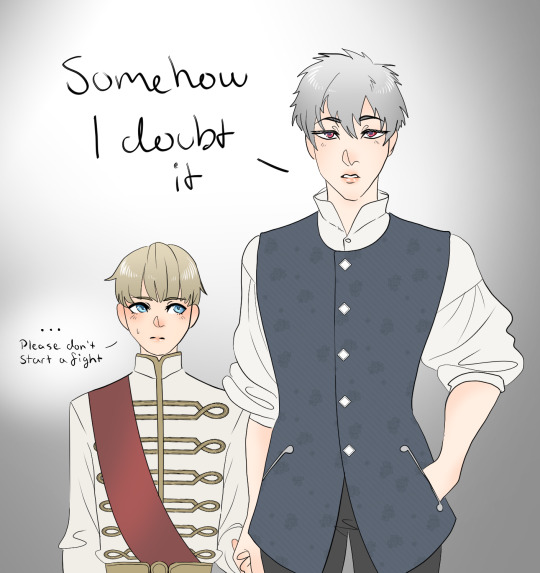
"He'd be cleaved clean in half"
#this would be a good ask for any other era i s2g#historical hetalia#hetalia#aph prussia#hws prussia#itty bitty baby boy luddy#aph germany#hws germany#technically yes that is him
54 notes
·
View notes
Text
I walk out
I do a little dance
I walk back into the black abyss
25 notes
·
View notes
Text


#art#gif#charmy#trinket#i was trying to do the club pengujn dance with thimble....#too many frames lmaooo#but we got charmy hitting the hampster dance trinket hitting the luddy x3
41 notes
·
View notes
Text
i think casey is way too smart for ludger, actually. every time they met before the big revelation, luddy does be "oh thanks the gods she is yet suspicious of me" but meanwhile casey is like "this mf keeps reminding me of james moriarty but i have no proofs so for now he's on thin fuckin ice."
#she also stealth stole his mana two times without him suspecting a thing#her true goal / ulterior motive for approaching him and learning his past was also never known to ludger#i think luddy occasionally underestimates casey big time#if her mind was actually set to defeating/capturing him instead ludger would have been in much bigger trouble#academy's undercover professor#casey selmore
25 notes
·
View notes
Text
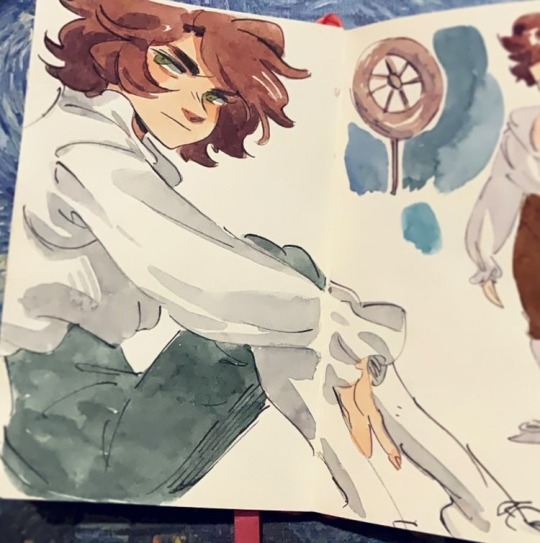
The handsome birthday boy 🥳 🎂 🎉
Luddy
The one and only 😍🥰
Ludwig van Beethoven - happy birthday 🎈
#Ludwig#luddy#young ludwig#ludwig van beethoven#Beethoven#Ludwig’s birthday#Beethoven birthday#birthday boy#cutie#doodle#happy birthday#adorable#pretty boy#handsome boy#Wolfie’s favourite
30 notes
·
View notes
Text

missed them ..
#rhrhrggrhfhfuejrhrhghfufhhgjgh. little luddy and j little luddy and j#drawing them feels like muscle memory#bunnyartz
21 notes
·
View notes
Note
This is actually a question for Ludwig! Would you consider yourself the most knowledgeable and skilled at magic compared to your other siblings? And if so, how would you describe your experiences wielding magic? Is it something you truly value?
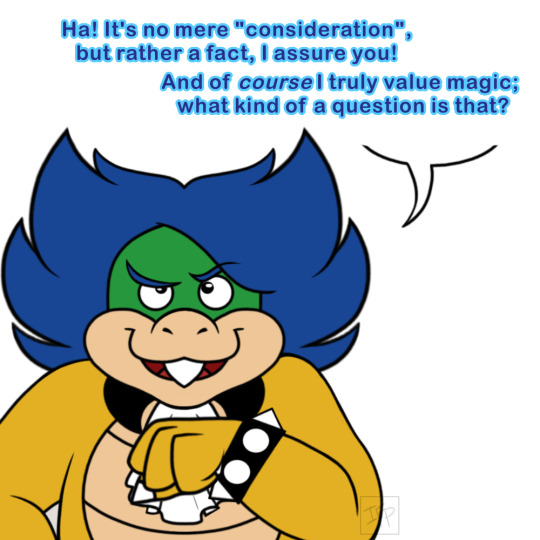
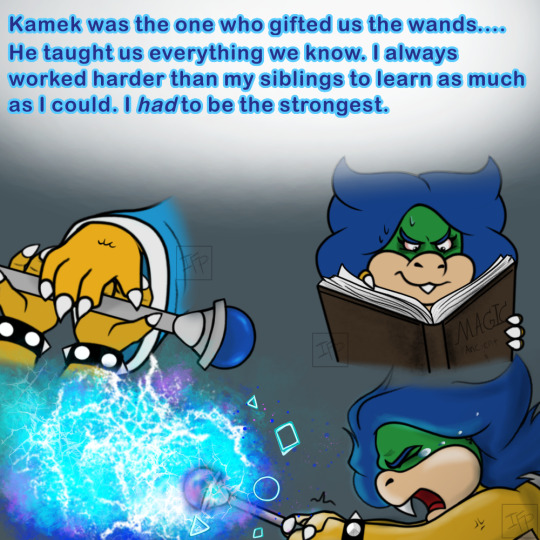
#12/13 year old Luddy in flashback#today's episode in “Is Luddy biased and a bit of a bastard”#The book says “MAGIC: Ancient and Modern Histories”#koopalings#super mario#nintendo#super mario bros#ask blog#nintendo fanart#ludwig von koopa#ask box open#art asks#kamek koopa
49 notes
·
View notes
Text

the jerminator
193 notes
·
View notes
Text
"Show and Tell. I'm on display for all you f-ckers to see."
"Buy and Sell. Like I'm a product to society."
"Art don't sell. Unless you f-cked every authority."
《☆》
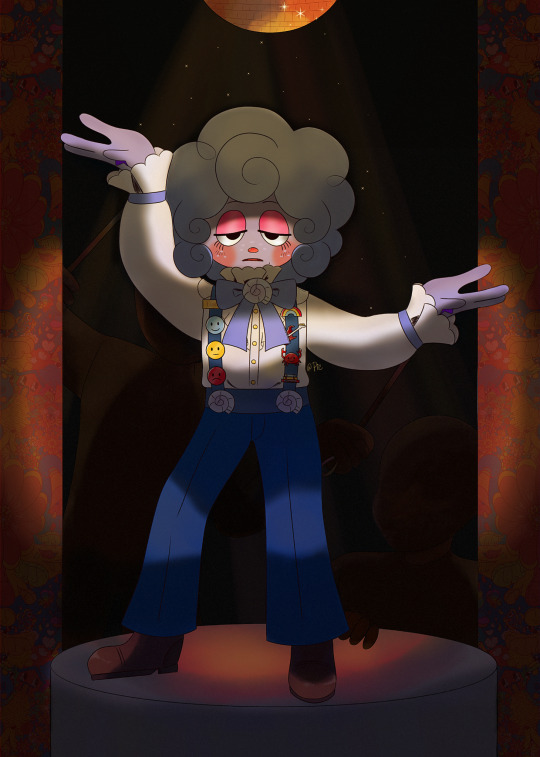
(GASP) Luddy lore??? 😳😳😳 you bet
Drew my boy, Luddy 💙 (he's not really enjoying the attention bc social anxiety </3)
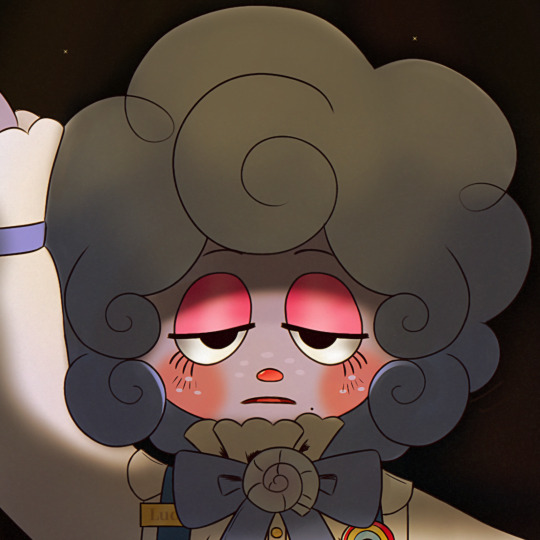

Inspired and based off Clown's art! 💛💙
.
.
.
《tags》
#welcome home puppet show#welcome home#welcome home fanart#art#welcome home fandom#welcome home ocs#welcome home oc#oc lore#lore#digitl art#artist on tumblr#man imagine being a puppet and still having social anxiety 😭😭😭#show and tell#i totally did not play the same 3 songs on loop while drawing this no no what makes you think that???#nah but fr#social anxiety sucks#he hates the attention#well at least he's a puppet so it's not like he HAS to talk or socialize with humans#also Luddy wouldn't swear he hates it when other swear in public or out loud lmao
9 notes
·
View notes
Text

YES, TUMBLR, I KNOW STEVEN HAS TWO HANDS I GET IT-
#luddycris#luddy doodles#fanart#moon knight fanart#marc spector#steven grant#jake lockley#stevenjake#steven x jake#marcsteven#moon knight#moon knight mcu#marc x steven#moon knight altershipping
1K notes
·
View notes